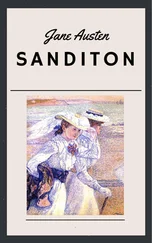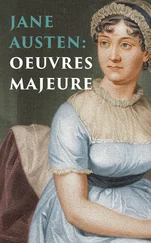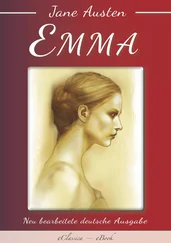Jane Austen - Northanger Abbey
Здесь есть возможность читать онлайн «Jane Austen - Northanger Abbey» весь текст электронной книги совершенно бесплатно (целиком полную версию без сокращений). В некоторых случаях можно слушать аудио, скачать через торрент в формате fb2 и присутствует краткое содержание. Год выпуска: 1803, Жанр: Исторические любовные романы, Классическая проза, на английском языке. Описание произведения, (предисловие) а так же отзывы посетителей доступны на портале библиотеки ЛибКат.
- Название:Northanger Abbey
- Автор:
- Жанр:
- Год:1803
- ISBN:нет данных
- Рейтинг книги:5 / 5. Голосов: 1
-
Избранное:Добавить в избранное
- Отзывы:
-
Ваша оценка:
- 100
- 1
- 2
- 3
- 4
- 5
Northanger Abbey: краткое содержание, описание и аннотация
Предлагаем к чтению аннотацию, описание, краткое содержание или предисловие (зависит от того, что написал сам автор книги «Northanger Abbey»). Если вы не нашли необходимую информацию о книге — напишите в комментариях, мы постараемся отыскать её.
Northanger Abbey — читать онлайн бесплатно полную книгу (весь текст) целиком
Ниже представлен текст книги, разбитый по страницам. Система сохранения места последней прочитанной страницы, позволяет с удобством читать онлайн бесплатно книгу «Northanger Abbey», без необходимости каждый раз заново искать на чём Вы остановились. Поставьте закладку, и сможете в любой момент перейти на страницу, на которой закончили чтение.
Интервал:
Закладка:
CHAPTER 2
In addition to what has been already said of Catherine Morland's personal and mental endowments, when about to be launched into all the difficulties and dangers of a six weeks' residence in Bath, it may be stated, for the reader's more certain information, lest the following pages should otherwise fail of giving any idea of what her character is meant to be, that her heart was affectionate; her disposition cheerful and open, without conceit or affectation of any kind - her manners just removed from the awkwardness and shyness of a girl; her person pleasing, and, when in good looks, pretty - and her mind about as ignorant and uninformed as the female mind at seventeen usually is.
When the hour of departure drew near, the maternal anxiety of Mrs. Morland will be naturally supposed to be most severe. A thousand alarming presentiments of evil to her beloved Catherine from this terrific separation must oppress her heart with sadness, and drown her in tears for the last day or two of their being together; and advice of the most important and applicable nature must of course flow from her wise lips in their parting conference in her closet. Cautions against the violence of such noblemen and baronets as delight in forcing young ladies away to some remote farm-house, must, at such a moment, relieve the fulness of her heart. Who would not think so? But Mrs. Morland knew so little of lords and baronets, that she entertained no notion of their general mischievousness, and was wholly unsuspicious of danger to her daughter from their machinations. Her cautions were confined to the following points. "I beg, Catherine, you will always wrap yourself up very warm about the throat, when you come from the rooms at night; and I wish you would try to keep some account of the money you spend; I will give you this little book on purpose."
Sally, or rather Sarah (for what young lady of common gentility will reach the age of sixteen without altering her name as far as she can?), must from situation be at this time the intimate friend and confidante of her sister. It is remarkable, however, that she neither insisted on Catherine's writing by every post, nor exacted her promise of transmitting the character of every new acquaintance, nor a detail of every interesting conversation that Bath might produce. Everything indeed relative to this important journey was done, on the part of the Morlands, with a degree of moderation and composure, which seemed rather consistent with the common feelings of common life, than with the refined susceptibilities, the tender emotions which the first separation of a heroine from her family ought always to excite. Her father, instead of giving her an unlimited order on his banker, or even putting an hundred pounds bank-bill into her hands, gave her only ten guineas, and promised her more when she wanted it.
Under these unpromising auspices, the parting took place, and the journey began. It was performed with suitable quietness and uneventful safety. Neither robbers nor tempests befriended them, nor one lucky overturn to introduce them to the hero. Nothing more alarming occurred than a fear, on Mrs. Allen's side, of having once left her clogs behind her at an inn, and that fortunately proved to be groundless.
They arrived at Bath. Catherine was all eager delight - her eyes were here, there, everywhere, as they approached its fine and striking environs, and afterwards drove through those streets which conducted them to the hotel. She was come to be happy, and she felt happy already.
They were soon settled in comfortable lodgings in Pulteney Street.
It is now expedient to give some description of Mrs. Allen, that the reader may be able to judge in what manner her actions will hereafter tend to promote the general distress of the work, and how she will, probably, contribute to reduce poor Catherine to all the desperate wretchedness of which a last volume is capable - whether by her imprudence, vulgarity, or jealousy - whether by intercepting her letters, ruining her character, or turning her out of doors.
Mrs. Allen was one of that numerous class of females, whose society can raise no other emotion than surprise at there being any men in the world who could like them well enough to marry them. She had neither beauty, genius, accomplishment, nor manner. The air of a gentlewoman, a great deal of quiet, inactive good temper, and a trifling turn of mind were all that could account for her being the choice of a sensible, intelligent man like Mr. Allen. In one respect she was admirably fitted to introduce a young lady into public, being as fond of going everywhere and seeing everything herself as any young lady could be. Dress was her passion. She had a most harmless delight in being fine; and our heroine's entree into life could not take place till after three or four days had been spent in learning what was mostly worn, and her chaperone was provided with a dress of the newest fashion. Catherine too made some purchases herself, and when all these matters were arranged, the important evening came which was to usher her into the Upper Rooms. Her hair was cut and dressed by the best hand, her clothes put on with care, and both Mrs. Allen and her maid declared she looked quite as she should do. With such encouragement, Catherine hoped at least to pass uncensured through the crowd. As for admiration, it was always very welcome when it came, but she did not depend on it.
Mrs. Allen was so long in dressing that they did not enter the ballroom till late. The season was full, the room crowded, and the two ladies squeezed in as well as they could. As for Mr. Allen, he repaired directly to the card-room, and left them to enjoy a mob by themselves. With more care for the safety of her new gown than for the comfort of her protegee, Mrs. Allen made her way through the throng of men by the door, as swiftly as the necessary caution would allow; Catherine, however, kept close at her side, and linked her arm too firmly within her friend's to be torn asunder by any common effort of a struggling assembly. But to her utter amazement she found that to proceed along the room was by no means the way to disengage themselves from the crowd; it seemed rather to increase as they went on, whereas she had imagined that when once fairly within the door, they should easily find seats and be able to watch the dances with perfect convenience. But this was far from being the case, and though by unwearied diligence they gained even the top of the room, their situation was just the same; they saw nothing of the dancers but the high feathers of some of the ladies. Still they moved on - something better was yet in view; and by a continued exertion of strength and ingenuity they found themselves at last in the passage behind the highest bench. Here there was something less of crowd than below; and hence Miss Morland had a comprehensive view of all the company beneath her, and of all the dangers of her late passage through them. It was a splendid sight, and she began, for the first time that evening, to feel herself at a ball: she longed to dance, but she had not an acquaintance in the room. Mrs. Allen did all that she could do in such a case by saying very placidly, every now and then, "I wish you could dance, my dear - I wish you could get a partner." For some time her young friend felt obliged to her for these wishes; but they were repeated so often, and proved so totally ineffectual, that Catherine grew tired at last, and would thank her no more.
They were not long able, however, to enjoy the repose of the eminence they had so laboriously gained. Everybody was shortly in motion for tea, and they must squeeze out like the rest. Catherine began to feel something of disappointment - she was tired of being continually pressed against by people, the generality of whose faces possessed nothing to interest, and with all of whom she was so wholly unacquainted that she could not relieve the irksomeness of imprisonment by the exchange of a syllable with any of her fellow captives; and when at last arrived in the tea-room, she felt yet more the awkwardness of having no party to join, no acquaintance to claim, no gentleman to assist them. They saw nothing of Mr. Allen; and after looking about them in vain for a more eligible situation, were obliged to sit down at the end of a table, at which a large party were already placed, without having anything to do there, or anybody to speak to, except each other.
Читать дальшеИнтервал:
Закладка:
Похожие книги на «Northanger Abbey»
Представляем Вашему вниманию похожие книги на «Northanger Abbey» списком для выбора. Мы отобрали схожую по названию и смыслу литературу в надежде предоставить читателям больше вариантов отыскать новые, интересные, ещё непрочитанные произведения.
Обсуждение, отзывы о книге «Northanger Abbey» и просто собственные мнения читателей. Оставьте ваши комментарии, напишите, что Вы думаете о произведении, его смысле или главных героях. Укажите что конкретно понравилось, а что нет, и почему Вы так считаете.












